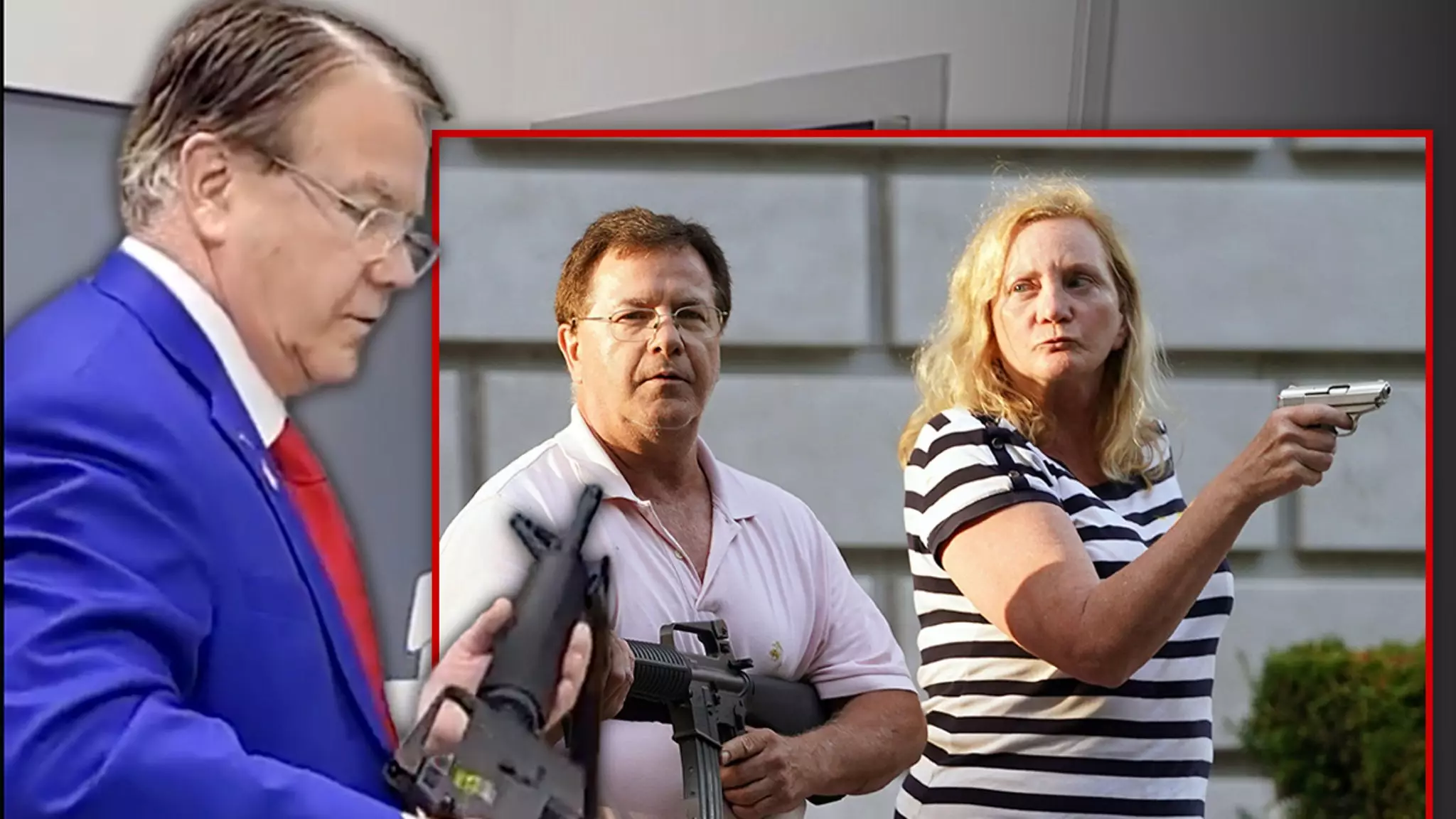In recent years, the case of Mark and Patricia McCloskey has emerged as a potent symbol of the deep ideological divides engulfing the United States. Their viral standoff against Black Lives Matter protesters in 2020 encapsulated the raw tensions between conservative protectionism of property and the aggressive push for racial justice. Yet, beyond the spectacle, their story underscores a broader narrative about perseverance, legal battles, and the polarization that defines contemporary political discourse.
What stands out is the relentless effort by the McCloskeys to reclaim their firearms, which they see as essential symbols of their personal liberty and resistance. Mark’s triumphant public announcement about recovering his AR-15 after nearly two years of legal turbulence reflects a conviction that their actions were justified, if not patriotic. His narrative emphasizes a failure of the justice system to recognize their perspective, aligning with a larger cultural sentiment that views many legal and political institutions as adversaries rather than protectors of individual rights.
A Controversial Clash of Law, Politics, and Public Opinion
The legal saga surrounding the McCloskeys is emblematic of the tumultuous landscape of American justice. Initially charged with felonies, their guilty pleas to misdemeanors followed by pardons led to a perception among their supporters that they were unfairly targeted by a political and judicial system inclined to distort their intentions. The quick expungement of their convictions further underscores the narrative of resilience they advocate—one that portrays themselves as victims of political oppression rather than perpetrators of violence.
Their case reveals how legal processes can serve as battlegrounds for ideological battles. Supporters see their legal victories as validation of conservative values—standing firm against what they perceive as leftist overreach. Critics, however, argue that it highlights a troubling tendency for the powerful and well-connected to manipulate the justice system in their favor. Mark’s boast about going back to the police to recover his weapon from the sheriff’s custody exemplifies their relentless pursuit to restore their personal arsenal, framing their story as one of unyielding resistance against societal shifts they oppose.
Reflecting on the Broader Impact and Public Discourse
The McCloskey saga is more than a personal story; it underscores the cultural battle over firearms, property rights, and political identity in America. Their campaign to regain their firearms and their vociferous defense of their actions serve as rallying points for those who see gun ownership and property rights as fundamental liberties worth defending at all costs. Conversely, it fuels ongoing debates about racial justice, community safety, and the proper role of firearms within American society.
While some view their actions and subsequent legal victories as a testament to perseverance and constitutional rights, others see it as emblematic of systemic issues—inequities that disproportionately favor the politically powerful. Their story prompts a critical examination of whether legal victories translate into genuine justice or whether they merely reinforce cycles of polarization, entrenching the divide rather than bridging it. The narrative invites us to question: Is resilience enough in a landscape where legal systems are heavily influenced by political power, or must we strive for a deeper, more equitable form of justice?

